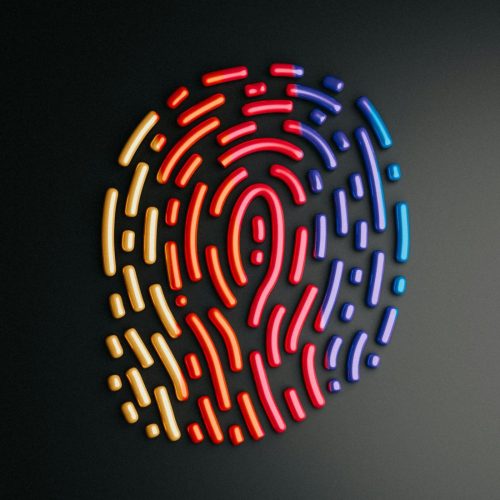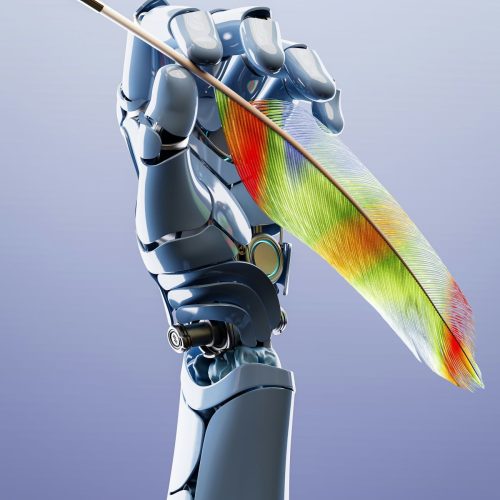One of the main challenges facing businesses today is the succession of disruptive phenomena. They require new strategies, new processes and, of course, new behaviours. Digital transformation and the race to harness artificial intelligence, combined with changes in workplace behaviour and global competition, are shaking up the rules of leadership. Managers and executives, do you have the necessary skills?
In this article I explore how a professional support coaching can help you to acquire new key skills, such as mastering strategic foresight or the art of storytelling, so that you can face tomorrow more calmly.
Contents

The benefits of professional coaching for 7 soft skills of the future
1. Digital literacy
Digital fluency, beyond technical know-how
Digital transformation goes far beyond the adoption of new technologies and processes. Above all, it's about overcoming inertia and resistance to changing ways of thinking and working. Let's face it: many managers are older than most of the people who work with them. Hence the risk of appearing more or less out of touch...
In the future, the pace of technological change will continue to accelerate, and new digital tools will continue to emerge, reshaping industries and competitive landscapes. Digital fluency is therefore not just about understanding artificial intelligence or Internet of Things technology, but also about using it strategically to achieve better business development results.
So beyond mere technical skills, it's about understanding the nuances of the digital world, to better contribute to product design, user experience and the technological direction of the business. And it's about learning how to harness technology to drive innovation and strategic growth in areas as diverse as data science, artificial intelligence (AI) and deep learning.
Managers and executives will increasingly have to be agile enough to adopt new technologies and use them to their advantage, working in teams with a variety of profiles including big data architects, digital marketing specialists and machine learning engineers. For example, how do you integrate artificial intelligence into an after-sales service? I'm not talking here about the technical aspects, but about thinking about the effects on the customer experience and on the commitment of after-sales service teams, with a global approach.
With professional support
And therein lies the rub. If up until now you've been valued and rewarded for behaviours such as practicality, consistency and autonomy, why wouldn't you find it uncomfortable to have to adopt behaviours that encourage boldness, experimentation and creativity from now on?
A Coaching for companies is a great way to gain a better understanding of digital tools and how they can be used to innovate and stay competitive, balancing your AI-derived data with ethical considerations and the impact on your business.
2. Cultivating strategic foresight
From anticipation to action
Strategic foresight involves anticipating future trends and being ready to act accordingly. Not for everyone! Yet it is an essential skill in a professional environment where technological innovations, regulatory changes and market reversals are the norm. How can you make informed decisions today when the technological and regulatory landscape is likely to have changed dramatically in a year's time?
Unlike traditional planning, which often focuses on the most pressing challenges and their short-term objectives, strategic foresight requires both a longer-term perspective and more dynamic scenarios. This holistic approach means preparing for multiple potential futures rather than reacting to the present.
This raises a number of questions: does your organisational culture encourage new ideas and creative minds to imagine these scenarios based on a real situation? Does it encourage people to become better at solving the problems raised by these scenarios?
With professional support
You don't need technical know-how or professional training to answer these questions, but a change of culture. In the future, you will increasingly need to anticipate these changes and adapt your strategies to take action. These are all issues, scenarios and decision-making that can be addressed through coaching. It's not a question of using a session to identify emerging trends or new regulatory changes, but rather of taking the time to think about how your company, your department or your team can respond proactively, through an analysis of practices.
3. Improve your emotional intelligence
Empathetic management
Yes, I know, it's not an easy word to wield in a professional context where empathy suffers from a bad reputation. But at a time when talent retention and employee engagement are top priorities, it's hard to ignore what a better understanding of emotional intelligence (EI) can bring. The more you are in a position to manage large teams, the more advantageous it becomes to understand and adapt your emotions to situations and to others. With the spread of hybrid working methods, cross-functional teams and greater attention being paid to diversity and inclusion, it is becoming unacceptable not to be able to adapt to complex interpersonal dynamics. Without that, there can be no solid teams, and no career progression.
Especially as automation takes over repetitive and routine tasks, your ability to understand emotions will differentiate you from other less efficient managers and leaders. Emotional intelligence and cooperation will become increasingly important in your professional development.
With professional support
You might say that coaching already deals with this subject! Sessions with a professional coach offer a safe space to explore your emotional intelligence. A classic example: if you need to work on a recent conflict within your team. We'll explore your emotional triggers and see how you can deal more effectively with your stress and your verbal and physical communication. This work on personal development and getting to know yourself and others will prepare you to build stronger relationships with your teams. Important when you want to motivate and retain the best talent in an increasingly competitive job market, don't you think?
4. Taking care of teams
This skill, and those that follow, are based on the work of philosopher Gabrielle Halpern and business leader Olivier Fronty, who in 2020 described four 'meta-skills' of the future that are essential if we are to cope with the transformations in the world of work.
Attention span
Taking care of means being able to mobilise your attention span to observe and assess the quality of their interactions with their professional environment: colleagues, customers, partners, etc. For example, by organising dedicated times when the team can share their feelings and apprehensions about a specific work situation. This attention reflects the growing importance attached to responsible, empathetic and people-centred leadership, and to an ethical dimension that recognises the interconnection of societal and environmental issues with business.
With professional support
In conjunction with Human Resources, coaching can help you develop a more holistic vision of your leadership. For example, by thinking about assessing the environmental and social impact of certain business decisions, or the link between your work-life balance and that of the teams you work with. Integrity and kindness will never be demonstrated by an algorithm; it's precisely what will set you apart.
5. Constructing narratives
Compelling stories
Building narratives is the ability to construct convincing stories that bring teams together. It's about developing and communicating stories that resonate with internal and external stakeholders. These stories not only reflect the values of the organisation, but also help to align people around common goals, inspiring them to take action. For example, the French army has shown how a dystopian narrative has enabled it to identify the main security risks and organise itself to prevent them.
With professional support
Coaching can help you develop storytelling skills and stories that inspire and motivate. For example, a professional coach can work with you to develop a personal narrative that communicates your values, vision and purpose to your team. This can be particularly effective for communicating organisational change, launching new initiatives or aligning teams around a common vision.
6. Creating meaning
The deeper purpose of work
Creating meaning refers to a manager's or leader's ability to help teams understand the deeper purpose of their work, by linking the company's day-to-day activities to a wider purpose, both for employees in terms of their career direction, and for the customers they serve. With the rapid pace of technological and societal change, everyone is increasingly seeking to give meaning to their role, over and above their remuneration. Because as soon as what you have mastered becomes 'outdated' and no longer corresponds to the real situation in the world of work, you may start to wonder what social recognition you can still enjoy (a question familiar to retirees once they have left their professional careers)...
With professional support
Individual coaching can help you reflect on your organisation's mission and values and how these align with your own interpretation of business goals.
Team coaching can help to identify each person's beliefs and preconceptions, to differentiate between those that converge and those that diverge, and to build bridges between them in order to construct new shared narratives and restore meaning to the team's work.
7. Developing collaborative networks
Networks of skills and experience
This skill refers to the ability to move away from hierarchical, rigid and top-down leadership models towards more collaborative and decentralised networks, where information flows horizontally rather than vertically. Managers and executives increasingly need to work within networks of skills and experience, among peers or with partners, to foster innovation, agility and the shared appropriation of knowledge.
With professional support
Using the systemic approach, coaching can help you develop collaborative skills by focusing on how to build and sustain these networks of influence inside and outside your company, through an analysis of the practices you have put in place to date. The corollary is to encourage a culture of collaboration, where you act as a connector and facilitator of ideas.

2 French specificities to take into account
To what extent are all these future skills compatible with French culture?
- Emphasis on strategic vision and long-term planning
In France, managers and executives are often trained to think deeply about the long-term implications of their decisions rather than focusing solely on short-term results. The corporate culture places a strong emphasis on strategic vision and long-term planning.
Your questions will therefore be: how can a better understanding of the levers of digital technology usefully contribute to sustainable, long-term growth? How can strategic foresight help us not only to better anticipate but also to better plan for the future?
- Innovation within a traditional framework
While innovation is highly valued in France, it is often embedded in established structures and frameworks, reflecting a balance between creativity and adherence to tradition or established processes.
So your question will be: how can we foster a culture of innovation that doesn't throw the baby out with the bathwater and builds on past successes?
In conclusion
In terms of career development, what these skills for the future outline is a professional environment in which the potential of each manager and each director will increasingly be taken into account, i.e. their ability to mobilise their skills base and apply it to a particular sector or project... rather than their university career and their degree, however prestigious it may be.
The rise of automation opens up the prospect of a future of work that renews leadership. It will be determined less by technology than by the right combination of learning and experience, in particular the ability to learn how to learn, to adapt, to sort, to forget, to (re)build knowledge and to make decisions. There will be a growing demand for 'people' skills such as flexibility, creativity, problem-solving and critical thinking.
In this context, a form of support such as coaching for managers and executives is more than a development tool for Human Resources: it's a strategic investment in the company's future. By helping them acquire a strategic understanding of digital issues, and adopt more empathetic, narrative and collaborative approaches, coaching prepares them to shape the teams of tomorrow and meet the constantly changing demands of their company and society.



